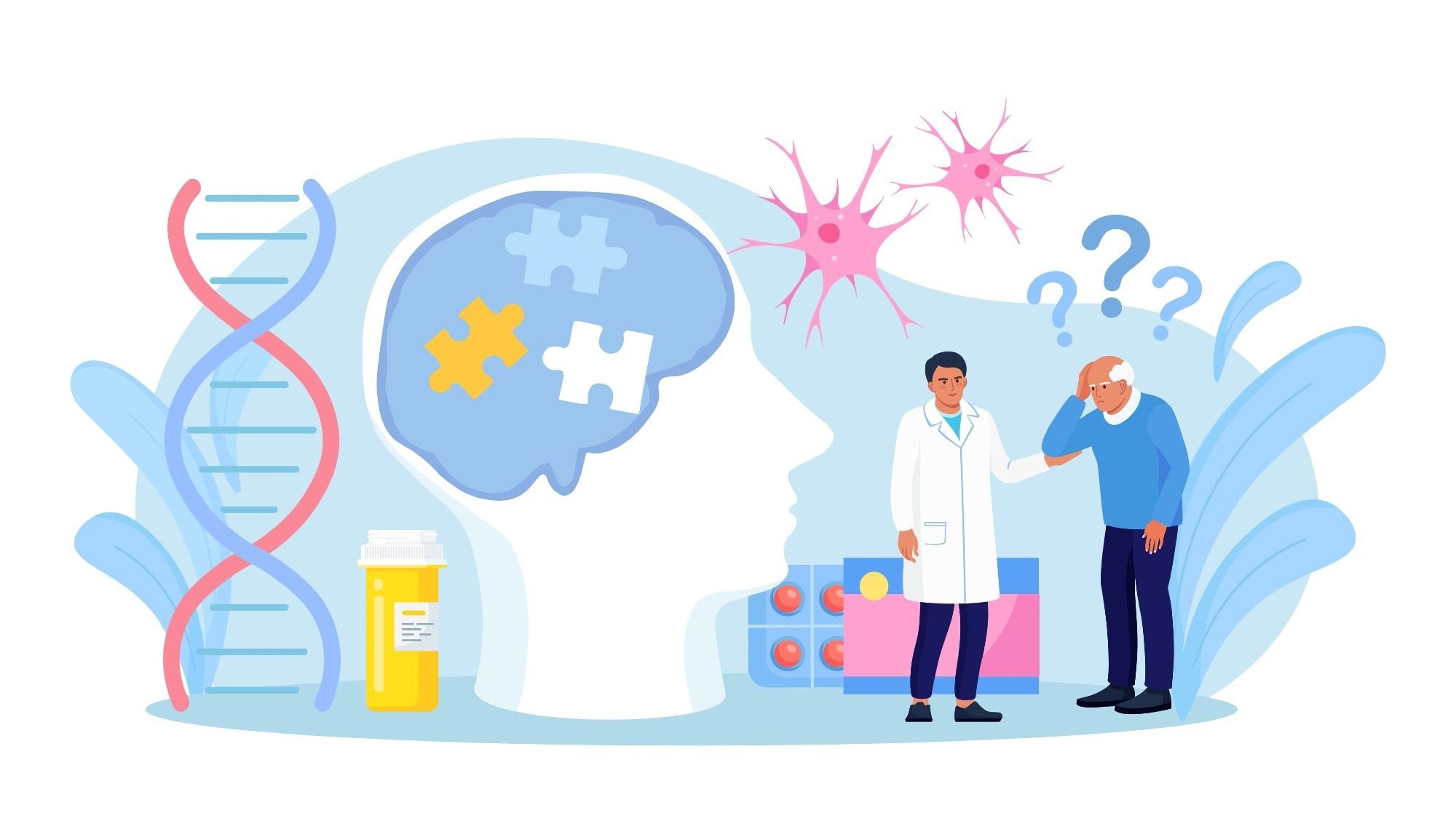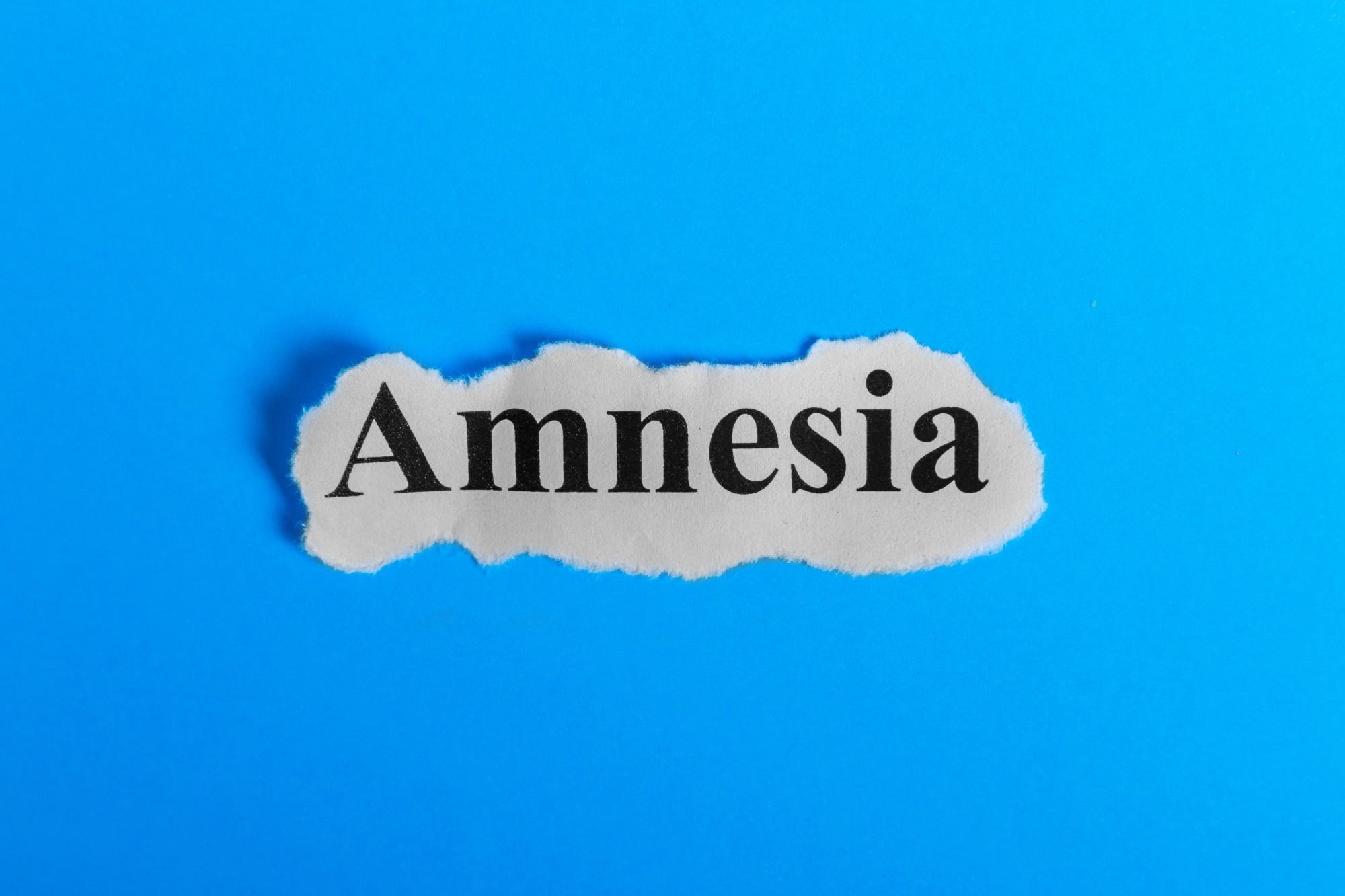Introduction
Questions asked to sufferers of amnesia
Specific symptoms of amnesia
References
Further reading
Memory loss may range from mild forgetfulness to more severe and permanent dementia.
It is normal to be mildly forgetful with age. However, some worrying symptoms should alert the patient and relatives to the underlying causes of memory loss.
 Image Credit: Buravleva stock/Shutterstock
Image Credit: Buravleva stock/Shutterstock
Questions asked to sufferers of amnesia
Some of the questions asked by the sufferer to themself or by the family before deciding on consulting a physician include (1-2):
- Is the memory impairment disrupting daily living activities? For example, memory loss affecting driving capabilities, maintaining personal hygiene, et cetera.
- Frequency of memory lapses. Forgetting an appointment or event once in a while is normal, but forgetting it repeatedly might mean a more severe memory lapse.
- Types of things that are being forgotten. For example, forgetting the name of a new acquaintance is normal, but a long-term acquaintance is not.
- If there is significant confusion. This may mean serious memory lapses, like putting something in an inappropriate place. A sufferer may place his shoes in the refrigerator, for example.
- If the memory loss is progressively becoming worse. If the memory loss worries friends or family.
- Other features like repeating the same phrases, questions, or stories in the same conversation or forgetting how to do routine tasks like combing hair, brushing teeth, et cetera. There may be trouble making decisions or handling money and frequent episodes of getting lost in familiar places.

 Read Next: Treatment of Amnesia
Read Next: Treatment of Amnesia
Specific symptoms of amnesia
Specific symptoms of memory loss and specifically amnesia include (3-5):
- Loss of explicit memory or recent memory - The typical amnesic patient cannot recall recent information like what they ate for lunch or a newly heard telephone number.
- Loss of implicit memory – Implicit memory refers to retention of the event or material information but incapability to recall it through conscious effort. In many cases, the patient does not even know that he or she has this information.
- Normal or near-normal ability to learn new skills in amnesia patients. Patients have good learning ability (e.g. making a circle using a compass), which implies good implicit memory. Still, they do not remember ever having practiced the skill, implying poor explicit memory.
- Anterograde amnesia – this means the patient forgets all events that have happened after a particularly traumatic event. This is seen in acute or sudden onset amnesia, like after a head injury, stroke or seizure. Many patients do not tend to forget their childhood, events, and skills before the accident. They, however, have trouble remembering day-to-day events.
- Retrograde amnesia is an inability to remember information acquired before the traumatic event or disease. Typically there is very poor recall of events that occurred in the near past before the brain damage.
- In Korsakoff’s psychosis, memory loss is caused by alcohol abuse. The person's short-term memory may appear normal; however, if given a string of words or pictures or a simple story to remember, the patient falters. This is called “Confabulation,” in which the sufferers make up stories to fill the gaps in their memory. There are other features like loss of feeling in the fingers and toes. This type of amnesia may remain even after five years of abstinence from alcohol.
- Childhood amnesia – This means the inability to recall events from early childhood.
- Transient global amnesia manifests as repetitive questioning, confusion about one’s identity, et cetera. It lasts for 4-12 hours with a full recovery.
- Loss of one’s own identity is termed fugue amnesia and is due to severe psychological trauma. Memory usually returns gradually.
 Image Credit: SNeG17/Shutterstock
Image Credit: SNeG17/Shutterstock
References
- https://www.fda.gov/
- https://cornellcares.org/
- http://www.ufrgs.br/english
- https://www.bbc.co.uk/
- https://www.patient.co.uk/doctor/Mild-Memory-Loss-and-its-Assessment.htm
Further Reading
Last Updated: Aug 21, 2023